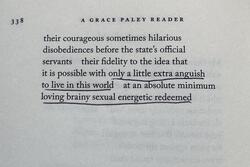What can we learn from Jewish women partisans? Jewish Partisan Education Foundation announces 2012 Youth Writing Contest
Thanks to the success of feature film Defiance (2008), Americans now associate the history of Jewish partisans with the hunky Bielski brothers, played by Daniel Craig, Liev Schreiber, and Jaime Bell. In the film's depiction of their society hidden deep in the forest women contributed by cooking and gathering food but not so much as leaders or fighters. The real story of female Jewish partisans--in the Bielski encampment and elsewhere--is, of course, much richer.
During World War II, thousands of Jewish women demonstrated extraordinary strength and determination to fight back as partisans against the Nazis and their collaborators. Faced with the constant threat of death, these women, many of them teens, overcame near-impossible odds. Here are just a few of their stories:
Matilde Bassani Finzi, an Italian Jew, was a member of the partisan group Comando Partigiano Supremo (the Supreme Partisan Command). After Germany invaded Italy, Bassani Finzi went to work passing information between partisan groups, writing and distributing anti-fascist and anti-Nazi newsletters and newspapers, stealing flashlights and medicines from the Germans on the pretext of activity for the Red Cross, and more. In April 1944 she was captured by the Germans outside the Vatican, where she had tried to secure sanctuary for Jews. She managed to escape, despite a gunshot wound to the leg.
Ida Landau (later Ida Fink) was confined to the Zbarazh ghetto with her family until 1942, when she and her younger sister acquired false identity papers. A fair haired, blue-eyed young woman, Landau did not look identifiably Jewish. The two sisters survived the war in hiding by concealing their identities. A fictionalized account of the war years appears in her novel The Journey.
Eta Wrobel escaped from a Nazi prison in Lublin and from two deportations. She smuggled guns she’d stolen from Germans in Lodz to her hometown of Lukow, Poland, and fled to the woods, where the Jewish partisans made her their commander. At one point Eta was shot in the leg and dug the bullet out of her leg with a knife. Unlike the other seven women in the unit, Eta refused to cook or clean. "We fought to survive," she would say. "We fought so that some of us would get out of there and make new families, to spit in the Nazi’s eyes. Our babies are our revenge."
Discover more stories of female Jewish partisans at the Jewish Partisan Education Foundation blog, including Sonya Oshman, Rae Kushner, Vitka Kovner, and Mira Shelub.
These women were ordinary people who, faced with extreme circumstances, made a difference and did the extraordinary. To honor these women and encourage students to learn their stories, the Jewish Partisan Education Foundation is running an essay contest.
The 2012 Youth Writing Contest
The Mission:
1. Watch the short film Everyday the Impossible and explore some of the other resources at
www.jewishpartisans.org/women
2. Write a 300-600 word essay addressing the following: What can be learned from Jewish women partisans to inspire people today to make the world a better place?
Guidelines:
• There will be two competitions: one for 8th and 9th grades, and one for 10th to 12th grades.
• All entrants must be currently enrolled 8th-12th grade students.
• The entrant must be the sole author of the essay.
• Essays will be judged on: relevance to topic, quality of writing, personal voice, demonstrated knowledge of the Jewish partisans, and inspirational qualities.
• Entries must be submitted via the JPEF website by April 30, 2012. Winners will be announced May 21st.
• The contest is limited to the first 700 entries.
Essay contest entries will be judged by a panel that includes Jewish partisans. The most inspiring essays in the 8th to 9th grade level and the 10th to 12th grade level will win the writer a Kindle Fire. Second and third place winners will receive JPEF t-shirts, posters, and DVDs. The educator whose student wins first place will also receive a Kindle Fire.
Sign up and learn more about the contest, including guidelines for best practices at http://www.jewishpartisans.org/t_switch.php?pageName=students+contest








You know what! I was searching more information about it and finally I got it by your topic so now I am very happy and I want to talk about it and I need to know more and more but I donÌ¢âÂã¢t understand something in your topic, can you can you explain me these thing in your next post so I am waiting for your answer.
<ul class="field"><li class="field-label-inline">There are actually many gambling websites for aussie online players but if you wish the most beneficial aussie slots you'll want to visit this specific on line site that typically is filled with machines games.</li> </ul>